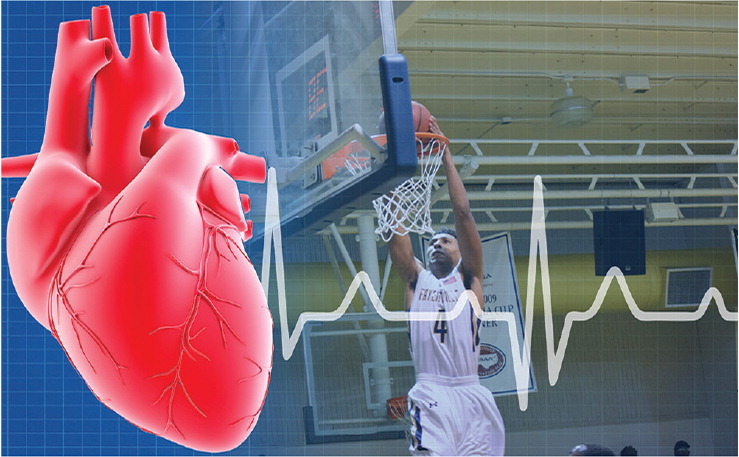
Am Fam Physician. 2017;96(11):738
Related letter: The Many Potential Causes of Sudden Cardiac Death in Young Athletes
It's my senior year of high school. I have been the leading scorer for my basketball team the past two years. We are undefeated in the conference, and I am the favorite to be Player of the Year and to make the All-State team. Two colleges plan to offer me athletic scholarships.
I was living my dream and fulfilling my goals. The last thing I remember, I was jogging down the court. Then I see EMS and my coach staring down at me while I lay on the ground. “What happened?” I was overcome with fear as tears filled my eyes. They told me I had passed out.
What occurred over the next four weeks would change my life. An abnormal EKG and echocardiogram led to a stress test and cardiac MRI. The results were unimaginable. I was told that I would not be able to complete my senior basketball season or play collegiate basketball. I had been diagnosed with apical hypertrophic cardiomyopathy. The physician asked me if I had heard of Hank Gathers. Little did I know, he was a star college basketball player who was the nation's leading scorer and rebounder in 1990 when he collapsed and died during a televised game. An autopsy found that he had hypertrophic cardiomyopathy.
My emotional pain was followed by anger. I supported my team from the sideline for the remainder of the season. During the final championship game, I put my uniform on. My name was called out for the last time as a starting player. After tip-off, I scored the final two points of my basketball career with a commemorative layup. Over the past few months, I have started playing golf, a low-intensity sport that is safe for me to participate in. Hypertrophic cardiomyopathy certainly has forced me to take a detour in my journey, but it has opened up different opportunities through which I can fulfill my destiny.—j.g.

COMMENTARY
As a family physician and this athlete's father, the first thing I did was take him to see a cardiologist. To be safe, I wanted an EKG done, but hypertrophic cardiomyopathy seemed unlikely. My son had no prior symptoms and no family history of cardiac disease. In 20 years, I have never diagnosed hypertrophic cardiomyopathy in a patient.
The physical examination did not aid in his diagnosis. Rather, the history of collapse was the first and only indication of his condition. This serves as a reminder that during preparticipation examinations for athletes, a detailed history may provide the only clue to a potentially lethal underlying cardiac condition.
As catastrophic as this ordeal has been, it has reminded us how important family relationships are. My son will attend college this fall on an academic scholarship.
